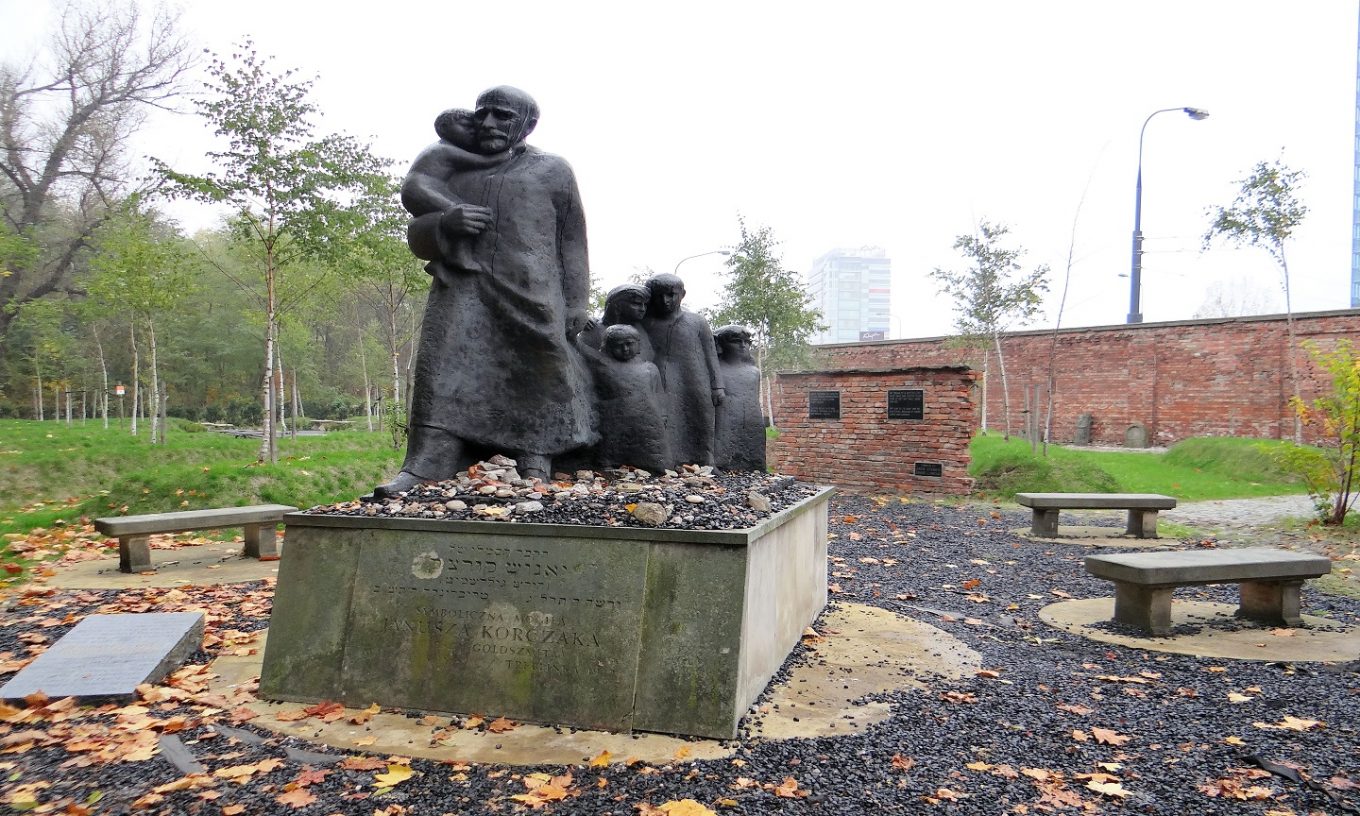“Nie mam godności,
mam 200 dzieci.”
[I have no dignity; I have
200 children.]
– Dr Korczak
A walk through the forgotten places of the world always brings me back to myself, as when I came across this labyrinth of ancient broken stones slowly being swallowed by poplars twisting around a stacked crowd of souls. Headstone after headstone, grave after grave piled one atop the other proclaiming beautiful hybrid names like “Wiesław Apfelbaum,” or “Estera Krakowska,” at once so very Jewish and so very Polish, now at rest in the jostled graveyard of history’s great shame.
My cold footfalls wind around empty tombs and thickets full of dry leaves. I am not one to argue with dark trees listing in the hollow slump of wind, especially when the ice-glazed paths make it hard enough to navigate a world where night arrives so early that only the crooked jackdaws, charred with the dust of a brief day, seem capable of finding their way out of this land of the dead.
I suddenly stumble across the site of Korczak’s last temptation among the ghosts of his ancestors, where he was offered for a third time the chance at freedom and life, his stubborn refusal to leave behind his 200 children the new bar for moral courage. I ponder the moment he helped them off the train in Treblinka, the wind in his grey beard, the water in his large sad eyes, carrying the smallest of them in his aged arms towards the gas and fire, keeping them calm with his stoic assurance and fatherly love, his life now reduced to lonely bronze statues and neglected plaques.
It is not an easy thing to come upon a monument to such loss in the middle of a cloudless November afternoon when your thoughts are on the joys of life. To witness the horrible beauty of green moss thickening over the memories housed here. The terror of names and dates steadily vanishing from human knowledge. Cold mud has been spilling over the pathways of this history for some time now, yet fewer and fewer pilgrims leave behind their footprints within it.
On the way home, as thin white birches chase after me down the tracks, I finally come back to myself. The hum of the train fades behind the bored faces of other travelers, and I am left alone to take stock of my own accountability in this all-too-human story, compelled to remember the past.
Janusz_Korczak monument at Jewish Cemetery in Warsaw





